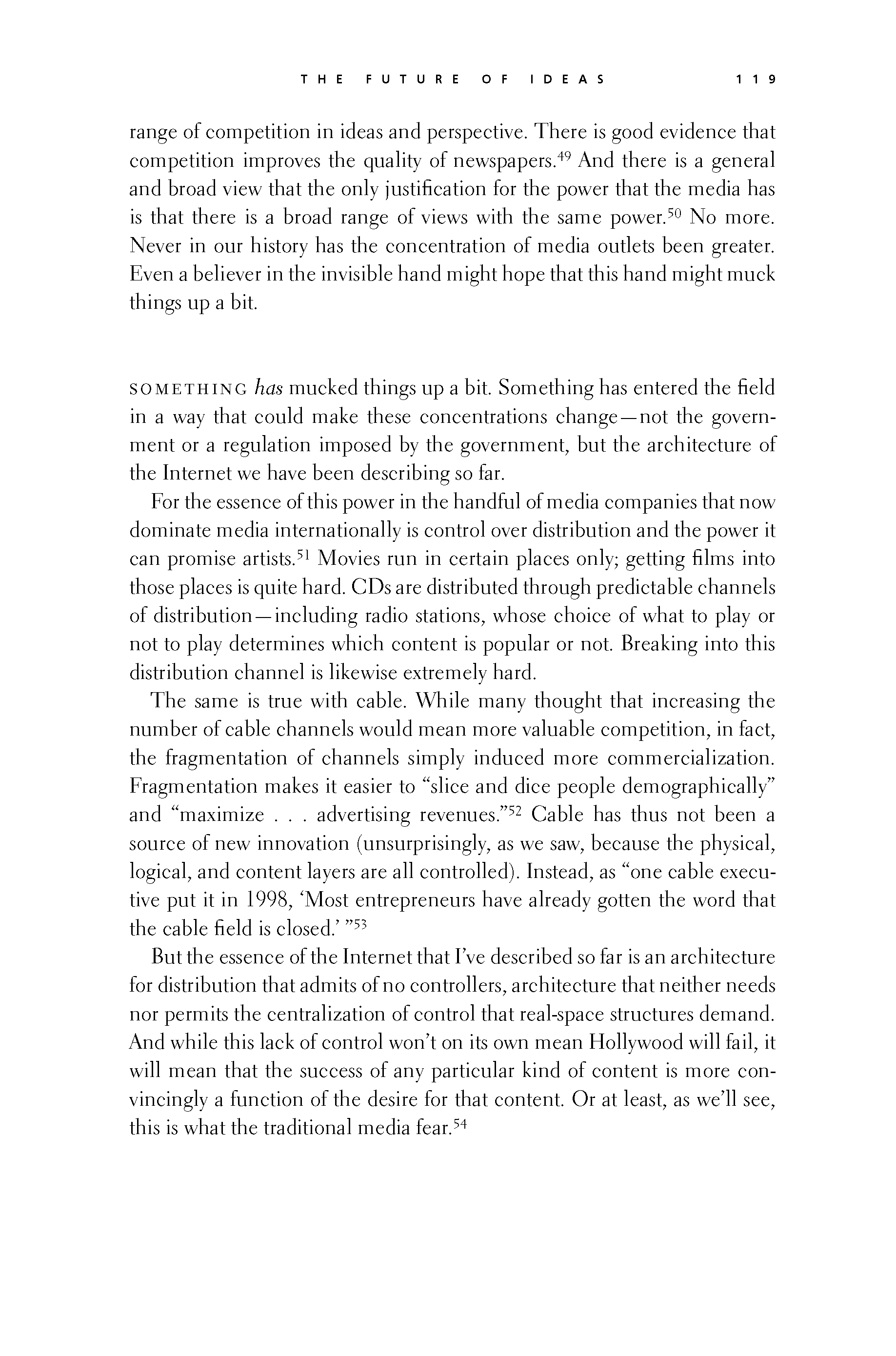 p118 _
-chap- _
toc-1 _
p119w _
toc-2 _
+chap+ _
p120
p118 _
-chap- _
toc-1 _
p119w _
toc-2 _
+chap+ _
p120
range of competition in ideas and perspective. There is good evidence that
competition improves the quality of newspapers.[7-49] And there is a general
and broad view that the only justification for the power that the media has
is that there is a broad range of views with the same power.[7-50] No more.
Never in our history has the concentration of media outlets been greater.
Even a believer in the invisible hand might hope that this hand might muck
things up a bit.
///\\\
Something _has_ mucked things up a bit. Something has entered the field
in a way that could make these concentrations change -- not the govern-
ment or a regulation imposed by the government, but the architecture of
the Internet we have been describing so far.
For the essence of this power in the handful of media companies that now
dominate media internationally is control over distribution and the power it
can promise artists.[7-51] Movies run in certain places only; getting films into
those places is quite hard. CDs are distributed through predictable channels
of distribution -- including radio stations, whose choice of what to play or
not to play determines which content is popular or not. Breaking into this
distribution channel is likewise extremely hard.
The same is true with cable. While many thought that increasing the
number of cable channels would mean more valuable competition, in fact,
the fragmentation of channels simply induced more commercialization.
Fragmentation makes it easier to "slice and dice people demographically"
and "maximize... advertising revenues."[7-52] Cable has thus not been a
source of new innovation (unsurprisingly, as we saw, because the physical,
logical, and content layers are all controlled). Instead, as "one cable execu-
tive put it in 1998, 'Most entrepreneurs have already gotten the word that
the cable field is closed.'"[7-53]
But the essence of the Internet that I've described so far is an architecture
for distribution that admits of no controllers, architecture that neither needs
nor permits the centralization of control that real-space structures demand.
And while this lack of control won't on its own mean Hollywood will fail, it
will mean that the success of any particular kind of content is more con-
vincingly a function of the desire for that content. Or at least, as we'll see,
this is what the traditional media fear.[7-54]
[[119]]
p118 _
-chap- _
toc-1 _
p119w _
toc-2 _
+chap+ _
p120